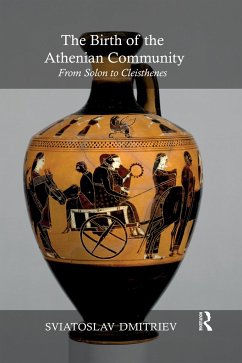The Birth of the Athenian Community elucidates the social and political development of Athens in the sixth century, when, as a result of reforms by Solon and Cleisthenes (at the beginning and end of the sixth century, respectively), Athens turned into the most advanced and famous city, or polis, of the entire ancient Greek civilization. Undermining the current dominant approach, which seeks to explain ancient Athens in modern terms, dividing all Athenians into citizens and non-citizens, this book rationalizes the development of Athens, and other Greek poleis, as a gradually rising complexity, rather than a linear progression. The multidimensional social fabric of Athens was comprised of three major groups: the kinship community of the astoi, whose privileged status was due to their origins; the legal community of the politai, who enjoyed legal and social equality in the polis; and the political community of the demotai, or adult males with political rights. These communities only partially overlapped. Their evolving relationship determined the course of Athenian history, including Cleisthenes' establishment of demokratia, which was originally, and for a long time, a kinship democracy, since it only belonged to qualified male astoi.
Hinweis: Dieser Artikel kann nur an eine deutsche Lieferadresse ausgeliefert werden.
Hinweis: Dieser Artikel kann nur an eine deutsche Lieferadresse ausgeliefert werden.

